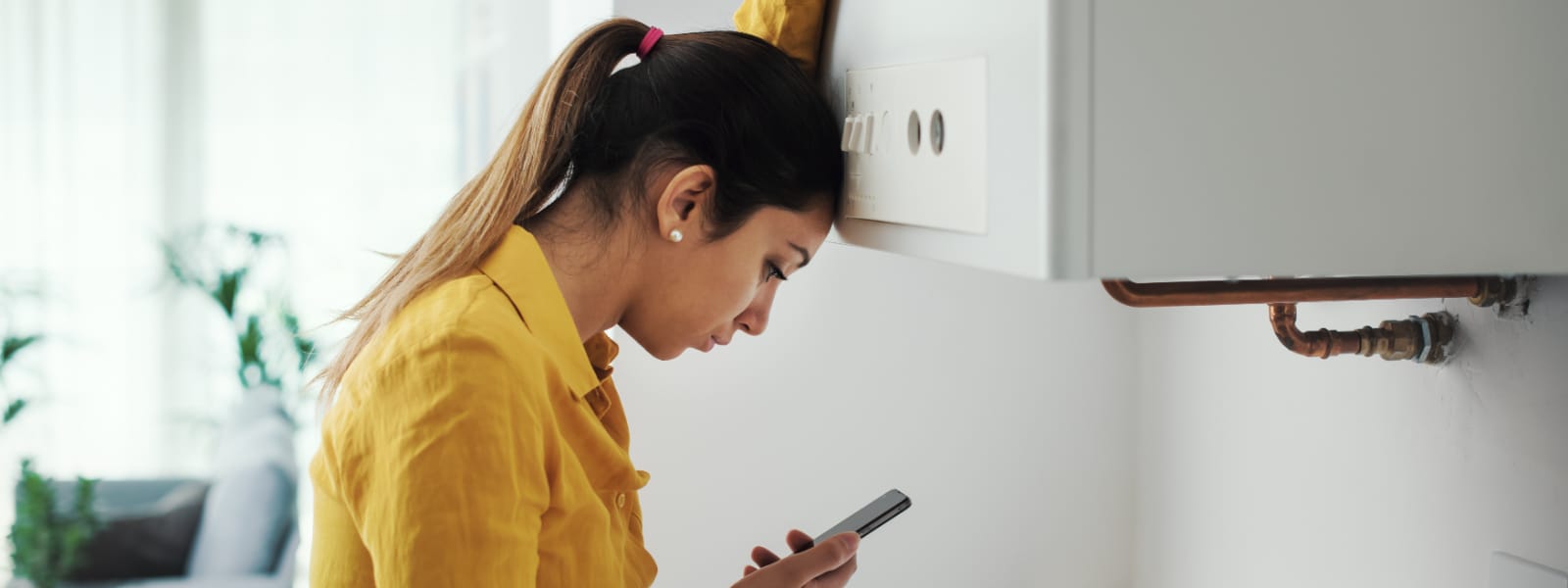Your HVAC Filter Is Filthy—And You’re Breathing It In
Out of sight, out of mind. That’s the problem. You don’t see the dust clogging your HVAC filter. You don’t notice the buildup of pollen, pet dander, and airborne bacteria—until your energy bills spike, your allergies flare up, or your system breaks down. Let State Automatic help.
By then? It’s too late.
A neglected filter suffocates your HVAC system. It chokes airflow, forces your unit to work twice as hard, and turns your home into a breeding ground for allergens and bacteria. What seems like a small oversight is draining your wallet and poisoning your air.
So, how often should you replace your HVAC filter? More often than you think. And if you’re waiting until your system struggles, you’re already behind.
Let’s break it down.
How Often Should You Replace Your HVAC Filter?

The short answer? Every 30-90 days. But here’s the reality—most homes need replacements sooner. The more contaminants in your home, the faster your filter clogs.
Standard homes (no pets, no allergies): Every 60-90 days.
Homes with pets: Every 20-45 days. Pet hair and dander clog filters fast.
Allergy sufferers: Every 20-30 days. Clean air is non-negotiable.
High-efficiency filters (HEPA): Every 6-12 months, but check often.
Waiting longer than this? You’re suffocating your HVAC system, spiking your energy bill, and contaminating your home’s air.
The Silent Damage of a Dirty HVAC Filter
Neglecting your filter isn’t just bad—it’s expensive.
Higher Energy Bills
Your HVAC needs smooth airflow to function efficiently. A clogged filter forces it to work harder, running longer to maintain your home’s temperature. The result? Higher monthly energy bills for no reason.
Poor Air Quality
Think your home’s air is clean? If your filter is dirty, it’s not. Dust, mold spores, bacteria, and allergens circulate through your system, triggering allergies, asthma, and respiratory issues.
System Breakdown
Airflow restriction leads to overheating, frozen coils, and blower motor failure. What starts as a dirty filter ends in a multi-thousand-dollar repair—or a full system replacement.
Ignoring your filter today means paying for it tomorrow.
What’s the Best HVAC Filter for Your Home?
Not all filters are equal. A cheap, thin filter won’t protect your system—or your lungs. A high-efficiency filter lasts longer but may restrict airflow if your system isn’t designed for it. Choosing the right one matters.
Fiberglass filters (basic, cheapest): Traps dust, lasts 30 days. Minimal protection.
Pleated filters (mid-range, better efficiency): Captures allergens, lasts 60-90 days.
HEPA filters (best for allergies): Removes 99.97% of airborne particles. Lasts 6-12 months.
Electrostatic filters (washable, reusable): Captures more dust, but requires regular cleaning.
Not sure what’s best for your system? A professional can help you choose the right filter for maximum efficiency, airflow, and air quality.
How to Replace Your HVAC Filter Like a Pro
Most homeowners forget. They don’t check. They don’t replace. And their HVAC system suffers for it. Changing your filter takes less than five minutes. Here’s how to do it right:
Turn off your HVAC system. Never replace a filter while it’s running.
Find your filter. Most are located in the return air duct or inside the HVAC unit.
Check the size. Your filter’s dimensions are printed on the frame. Get the exact replacement.
Remove the old filter. If it’s caked in dust, you’ve waited too long.
Insert the new filter. Make sure the airflow arrows point toward the unit.
Turn your system back on. Enjoy cleaner air and better performance.
It’s that easy. But skipping this simple step is one of the biggest causes of HVAC failure.
The #1 Excuse Homeowners Make—And Why It’s Wrong
“I’ll replace it when my system starts acting up.”
Wrong.
By the time you notice weak airflow, weird smells, or rising energy bills, the damage is already done. Your HVAC has been struggling for weeks—maybe months. That means:
Your energy bills have already increased.
Your indoor air quality has already suffered.
Your system is already overworked and deteriorating.
Waiting isn’t an option. Replacing your HVAC filter on time is the simplest, cheapest way to prevent costly repairs.
HVAC Filters vs. Your Wallet—Why This Matters
A dirty filter costs more than a new one.
New filter: $10-$40
Increased energy bill from clogged filter: $10-$50 per month
HVAC repair from neglect: $500-$2,000
Full system replacement: $5,000-$15,000
That’s the math. A $10 filter swap now saves you thousands in repairs later.
It’s not a question of if your HVAC will suffer from a clogged filter. It’s a question of when. And when it does? It’s going to cost you.
Stop Guessing—Replace Your HVAC Filter On Time
Homeowners who replace their filters regularly spend less, breathe better, and extend the life of their HVAC system. Those who don’t? Pay for it in breakdowns, high bills, and poor air quality.
Which one do you want to be?
Take control of your HVAC system. Protect your home’s air. Stop wasting money. Call State Automatic at 630-326-6330 for professional filter replacement and expert HVAC maintenance in Batavia, IL.
